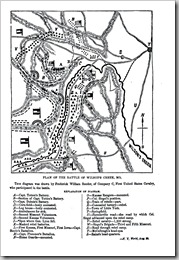August 18.—The privateer Jeff. Davis was wrecked this evening on the St. Augustine (Fla.) bar. The Charleston Mercury gives though following particulars of the loss: On Friday evening, the 16th inst., Captain Coxetter was off St. Augustine, but the wind having increased to half a gale, he could not venture in. He remained outside the bar the whole of Saturday without observing any of Lincoln’s fleet. On Sunday morning at half-past six, while trying to cross the bar, the Jeff. Davis struck, and though every possible exertion was made to relieve her by throwing the heavy guns overboard, yet the noble vessel, after her perilous voyage, and the running of innumerable blockades, became a total wreck. All the small-arms and clothing of the crew, with many valuable sundries, were, however, saved. On the arrival of the bravo but unfortunate crew in St. Augustine, they were received with a kindness that they never can forget. The town bells rang out a joyous peal of welcome, and the people vied with each other in their courtesies to the shipwrecked ones. Thanks to the noble hospitality of the Floridians, the men soon recovered from their fatigue. They arc expected to arrive in Charleston on Wednesday next. The name of the privateer Jeff. Davis had become a terror to the Yankees. The number of her prizes and the amount of merchandise which she captured has no parallel since the days of the Saucy Jack.
—To-day a company of Federal troops took possession of the Northwest Democrat, published at Savannah, Mo. The Democrat boldly carried at the head of its columns the name of Jeff. Davis for President, and of Claib. Jackson for Vice-President.—N. Y. Commercial Advertiser, August 26.
—Major-general John E. Wool arrived at Fortress Monroe yesterday morning. He was met at the wharf by Gen. Butler and staff and Col. Dimmick, who escorted him to the headquarters of Gen. Butler. An order was issued for all officers to report at four o’clock in the afternoon for review and to turn over the command to Gen. Wool. In consequence of a heavy rain, however, the review was postponed until this morning, when Gen. Wool assumed command of the post.—National Intelligencer, August 20.
—F. K. Zollicoffer, the rebel general at Knoxville, Tennessee, issued an order, expressing his gratification at the “increasing evidences of confidence” in East Tennessee, and declaring that “no act or word will be tolerated calculated to alarm or irritate those who, though heretofore advocating the National Union, now acqu’esce in the decision of the State and submit to the authorities of the Government of the Confederate States.”—(Doc. 194.)
—The Twenty-second Regiment of Indiana Volunteers, under the command of Col. Jefferson C. Davis, Indiana representative in Fort Sumter during its bombardment, passed through Terre Haute, on its way to St. Louis, Mo.— N. Y. Evening Post, August 21.
—This afternoon, between three and four o’clock, a body of three hundred rebel cavalry came down to the landing of the Ferry opposite Sandy Hook, Md., when two companies of Gordon’s Second Massachusetts Regiment fired and the rebels retreated. It is known that two were killed and five wounded. The Confederates are still hovering on the outskirts of Harper’s Ferry, watching the movements of the Federal troops.—National Intelligencer, August 21.
—The First Wisconsin Regiment returned to Milwaukee, from the seat of war, and was welcomed with the greatest enthusiasm. A collation was served and patriotic speeches were made by M. H. Carpenter, and Judge A. D. Smith.—Daily Wisconsin, August 19.
—A Scouting party, composed of the Lincoln Cavalry, under Lieut. Gibson, while to-day in the neighborhood of Pohick Church, some twelve miles from Alexandria, Va., encountered a company of secession cavalry. A slight skirmish ensued, during which private Irwin, belonging to Philadelphia, was killed. One of the Confederates was seen to fall from his horse, but his friends succeeded in carrying off his body.—National Intelligencer, August 19.



